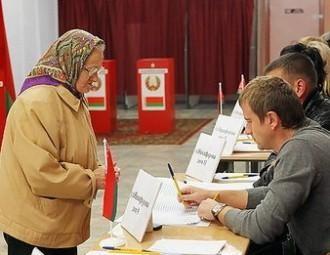Siarhei Alfer: No one knew for sure what this draft law was about

As it was expected, the House of Representatives deputies approved amendments to the electoral legislation. However, they has to be evaluated in parts, as they have both positive and negative sides.
This opinion in the talk with the EuroBelarus Information Service shared Siarhei Alfer, a lawyer and expert in election law.
- We can’t say that the adopted amendments are only positive or negative. They are mostly technical and designed to simplify the work of the election committees, which is positive, as it results in fewer mistakes and, accordingly, fewer complaints on the work of the election committees. However, I’m not talking about law enforcement here.
The next amendment, which consists in including the members of the committees in advisory capacity to the list of election committees, can be viewed as absolutely democratic. In any case, the possibility of manipulations with the protocols when they are transported from the local committees to the district ones decreases.
I also don’t think that the amendment, which provides for the abolition of budgetary financing of the election funds, is undemocratic. Of course, many people in our country are poor and used only these funds; it is common European practice. On the other hand, at the last parliamentary elections both the pro-government and opposition candidates have rarely used budget sources, which is sad.
Well, the issues concerning the ban on boycotts and conducting referendums are extremely ambiguous. Unfortunately, for now I have to refer to the words voiced in media by Lidzija Jarmoshyna, the CEC head, but I would like to clear out whether the citizens of our country are fully prohibited to have their say concerning the boycott of elections. In this case, it is undemocratic.
Unfortunately, we hardly ever organize public discussion of draft laws. No one knew for sure what this draft law was about, and I’m afraid that the vast majority of those who voted for its adoption on October 2 have seen it for the first time, which is absurd for any legislative body except the one that is working in Belarus.
-
03.01
-
07.10
-
22.09
-
17.08
-
12.08
-
30.09








































